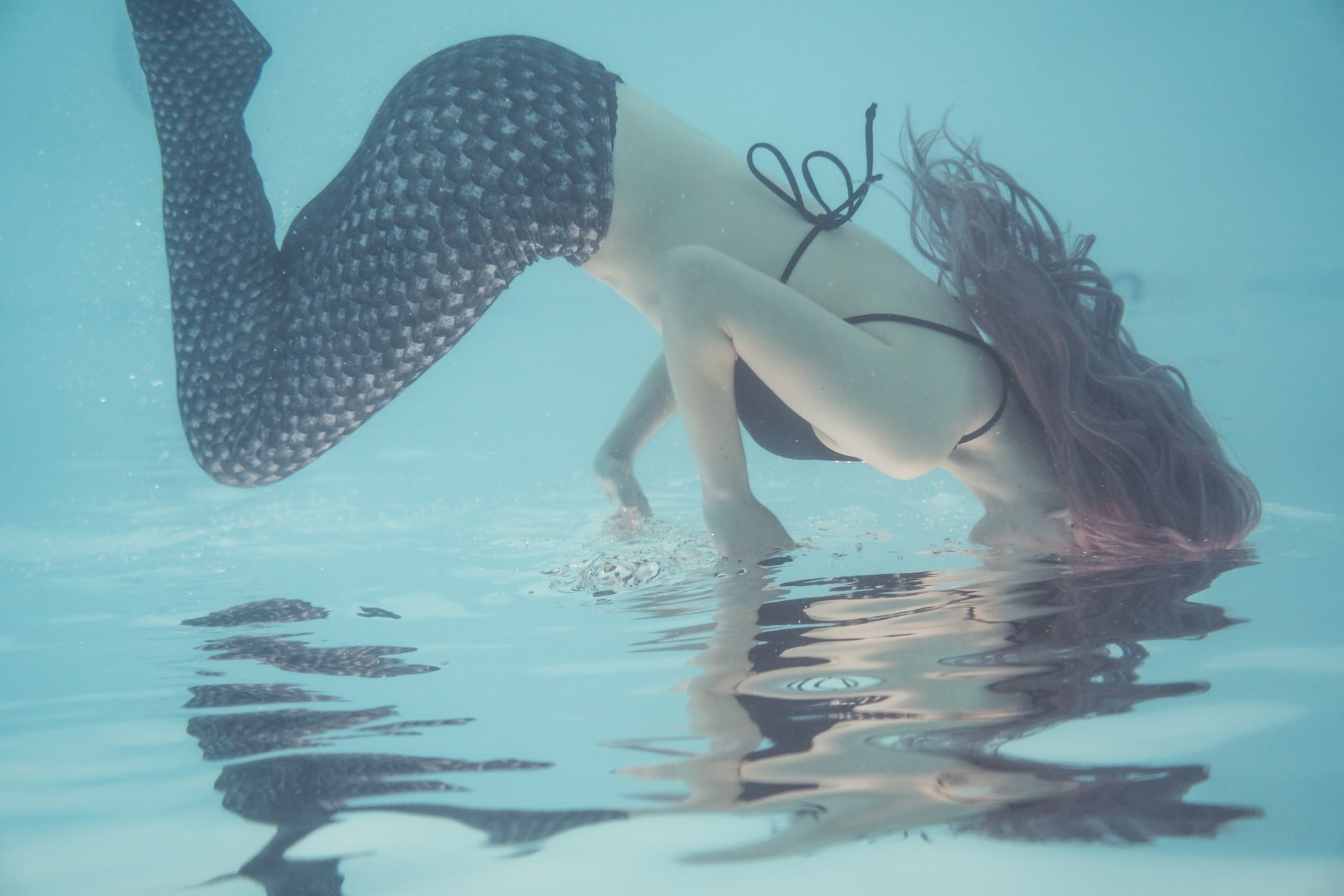By Caitlin Upshall
To love a mermaid means to find algae on your shoes. To forgive the smell of seaweed, become averse to sushi, and stop calling your period “shark week”. You postpone dyeing your hair blonde for fear that it will turn green underwater. You start to glide past your favorite bath bombs at the store, opting for biodegradable options instead. You become vegan in all of your choices as a consumer.
It’s expensive, but worth it because...the time you spend with her is the most beautiful chapter of your history book. You write letters to each other on days that you are apart, learning to treat water stains as kissed and blessed prose.
The minnows and lobsters and cuttlefish watch from a distance.
You will find new ways to write stories about her, turn love poems into sea shanties. Bring your violin to the harbor and play music for her, hoping that a whale might hear it and decide to echo it through the night.
Your friends do not understand why you love a mermaid at all. They will sympathize with your loneliness, compare the separation between ocean and land to their experiences with long distance relationships. You know that they worry about you when you are not around.
But others have done this; survived the long drive home from the harbor, created ponds in their
gardens and invited their mermaids to stay.
They never stay. You know this.
She starts to make jokes about spending time with other mermaids when you are not there. Laughter lines will appear beside her eyes; the same way your hands wrinkle when they stay in water for too long. You wonder how long she has been laughing.
You know that there are no other mermaids near the harbor, but you still wonder if she might have found one hiding in mythology, brought to life by a desire to be near her beauty.
Her smile can bring anything to life. You were once “anything”.
You become convinced that when you are away on land, the lobsters whisper all of your flaws in her ears, disguising them as sea shanties and tricking the whales into echoing them to her. The minnows tell her that she needs to stay in the salt. The cuttlefish say nothing at all and that’s even worse.
Your friends will try to lovingly frighten you back to your senses. They will send you stories and legends of men being drowned by sirens.
It never ends well they say
There is no way to love her without losing yourself they say
Garden ponds and bathtubs are not meant for mermaids they say
But how could they possibly know if they have never been one?
How could they warn against falling in love with her if they have never been loved by her?
You stop using straws. You stop watering your lawn, watch the grass begin to die and draw circles in the dirt. Pretend you could make a pool deep enough for her to live, not so deep that you would drown. Pretend it’s healthy to want to keep her to yourself; pretend this can still be called love.
You buy sea salt to pour into your bathtub, to change the water from a pond to a tidal pool.
Maybe, you think, this will be enough to convince her to stay.
They never stay. You know this.
Caitlin Upshall decided to be an author when she was nine years old. She has spent her grown-up years trying to make her 3rd grade-self proud. Her work can be found in The Sweet Tree Review, Entropy Magazine, and Words & Whispers. https://caitlinupshall.wixsite.com/caitlin-upshall


